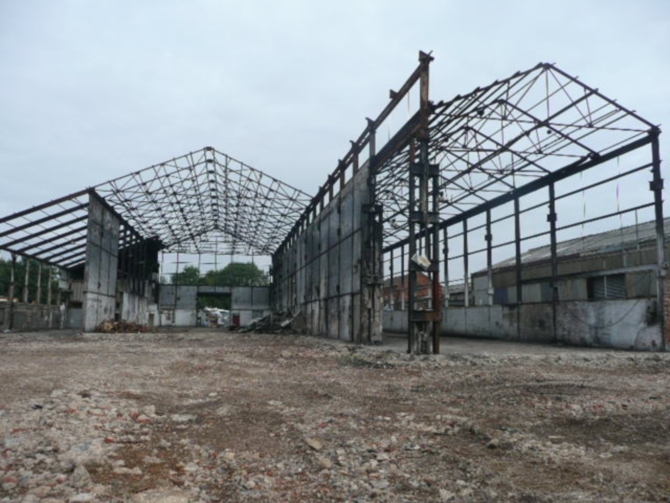Fire damage is a significant cost for insurers with companies paying out more than £3.6m every single day. It can be even more expensive for businesses with the Association of British Insurers predicting that as much as £10bn will be lost due to commercial and industrial blazes by 2020.

Now a senior commercial property agent has warned that businesses — which account for around 55 per cent of all fire losses — could be faced with hefty and often crippling repair bills if they ignore the importance of an accurate and up-to-date insurance valuation.
“The devastation caused to many businesses in Wellingborough as a result of the fire on the Leyland Trading Estate (pictured), and more recently on the Trojan Centre, can only highlight the horrendous effect a fire can have on companies,” stressed Richard Baker, a director at Northampton-based Prop-Search.
“All too often the trading premises are destroyed resulting in a significant impact on profitability and, in the worst case scenario, the collapse of the business.”
Companies that have not commissioned a specialist Building Cost Reinstatement Assessment (BCRA) could find they are undervalued and face further disruption as they are forced to meet the costs of rebuilding. “This is more important than ever as market values are picking up and seem likely to continue to do so,” Baker added.
Because of ever increasing construction and rebuilding costs and the disruption to a business, Prop-Search advises property owners to ensure that valuations are as accurate as possible to avoid both the under- and over-insuring of buildings. It’s also important to make sure that all premiums are calculated and paid correctly.
BCRA’s must be carried out by a certified chartered surveyor, every three years or at the change of occupancy. Accurate updates should also be obtained in the intervening years from a recognised source and applied as a percentage increase or decrease.
Where a property or workplace is listed and contains “historic” features, or is located within a conservation area, the local authority is also likely to insist that all repair work is carried out to the same specification and quality as the original.
It is vital to factor in the reconstruction costs of adjoining buildings or any site constraints or geographic features that will escalate an insurance pay-out, says the agent. Each building should be considered on its own merit and its insurance designed to take into account the additional cost for non-standard construction and highly specialised work such as shoring, demolition, and local authority and professional fees.
“Whilst we are witnessing more and more companies taking impartial advice — at the insistence of many insurers which are demand that values are updated to keep pace with inflation — we would advise all property owners to take the time to review their valuations as a matter of urgency,” concluded Richard Baker.
“This will ensure they don’t get their fingers burnt, should they be the unfortunate victim of a fire.”